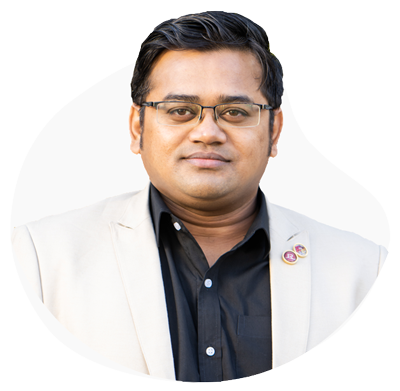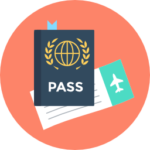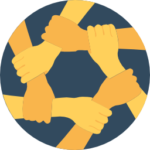OUR STORY

Life as a Rohingya - Message from Co-founder
As one of the Rohingya, I can say that each passing year seems to be a step back in time for us. In the course of the past 35 years, we have gone from a people with a sense of belonging and security in our homeland, to a people who are now called ‘the world’s most persecuted minority’. Whereas once we were a thriving culture, now we have been effectively disowned by our own state and scattered to the four corners of the Earth. The passage of each year is now a reminder of how our collective dignity is becoming a distant memory.
This has been much international uproar over the recent round of persecution in Rakhine since the middle of 2017. Yet this is nothing new for the Rohingya. Over the past several decades, and in particular over the past five years, such violence has become almost a routine spectacle for our people. What has received significantly less attention over this time, though, is the condition our people face in between these outbreaks of repression. The world knows well the Rohingya as victims of conflict, but they know far less of what hardships the Rohingya experience as a stateless people.
As defined by Article 1 of the 1954 Convention relating to the Status of Stateless Persons, a “stateless person” is someone who is not classified as a national by any state under its law. Being stateless means essentially lacking the basic elements of identity that we take for granted in our everyday life. These include a passport to travel, or a national identity card to open a bank account. They also include a birth certificate to prove that your son or daughter is actually your son or daughter. The vast majority of Rohingya lack these instruments of identification. Simple tasks become arduously difficult, and yet this is the reality for nearly three millions of us.
Statelessness has become an unending limbo. It is to be denied the most fundamental rights that should be granted to all at birth. It is to remain invisible and undocumented, and prey to all sorts of black markets and illegal trafficking. It is be purposefully excluded from the rest of humanity, and remain at the margins of societies in homelands that are not our own.
Yet as long as there is life, there is hope. Faced with this dire situation, we have launched a humble initiative seeking to find a modern antidote to the problem of statelessness. It is called the Rohingya Project.
What is Rohingya Project
Our grassroots effort is looking at leveraging technology to fill the gaps in the global order when it comes to stateless Rohingya and offer them identity and opportunity. By developing a Blockchain-based digital financial and social inclusion system exclusively for the Rohingya, we aim to bring the Rohingya out of the dark and restore our dignity as a people.
Our project looks to grant each Rohingya a personalized digital ID with their individual data that can verified and recognized, allowing them access to basic services such as education and healthcare that are open to everyone else. More importantly, their ID will grant them access to a range of financial and social inclusion options, with different online applications such as social tokens, digital registry and more. The ultimate goal of the Rohingya Project is to use the ID as a key to empower the Rohingya wherever they may be in the world, and over time allow for the creation of a thriving virtual community that can encourage collaboration and entrepreneurship. To build an economic base over time from which the Rohingya can slowly but surely enfranchise themselves.
A couple of decades ago, such a project may have seemed far-fetched. Yet technology is now evolving to the point where decentralized systems such as blockchain can ensure sensitive data is secure and under user-control, thus underlining the credibility of the system and allowing it be scaled and tracked.
Our project is a new experiment in humanitarianism with an ambitious goal of the empowering possibly millions of people across the world.
We realize that this is a huge undertaking. Beyond our own organizational capacity, it will require the resources and coordination of many stakeholders in the international community to accomplish what we are setting out to do. But this time is now, when the world is momentarily focused on the plight on the stateless, to provide tangible solutions. The stateless have been waiting for answers to their dilemma for nearly 70 years. We call on all those interested parties to help us in resolving one of the most overlooked global issues of our time.
Project Objectives
- To create a digital ecosystem to uplift and empower the stateless Rohingya in diaspora both economically and socially
- To achieve a number of UN Sustainable Development Goals related to poverty eradication, social marginalisation and others sustainability within the Rohingya community
- To offer a range of Blockchain-based applications to encourage entrepreneurship and financial
- To come up with a strong Proof of Concept for community empowerment that can be shared with other stateless and marginalised people
- To encourage Rohingya diaspora self-organisation and collaboration
- To provide support and capacity-building to Rohingya-led community initiatives on the ground
Unlocking potential with access to:







